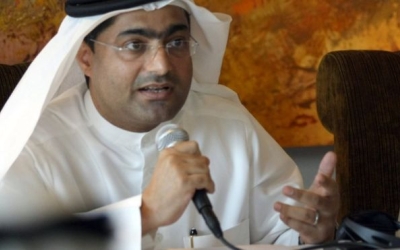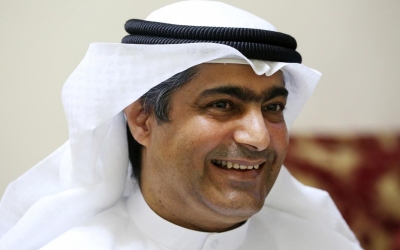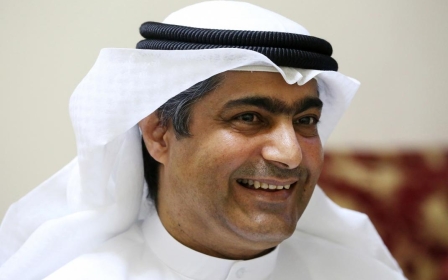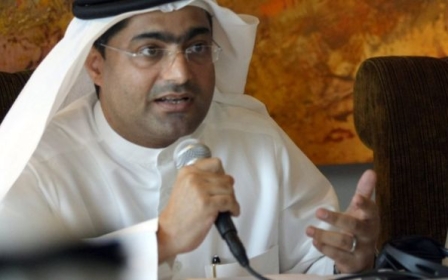UAE activist Ahmed Mansoor being held in shocking conditions: HRW
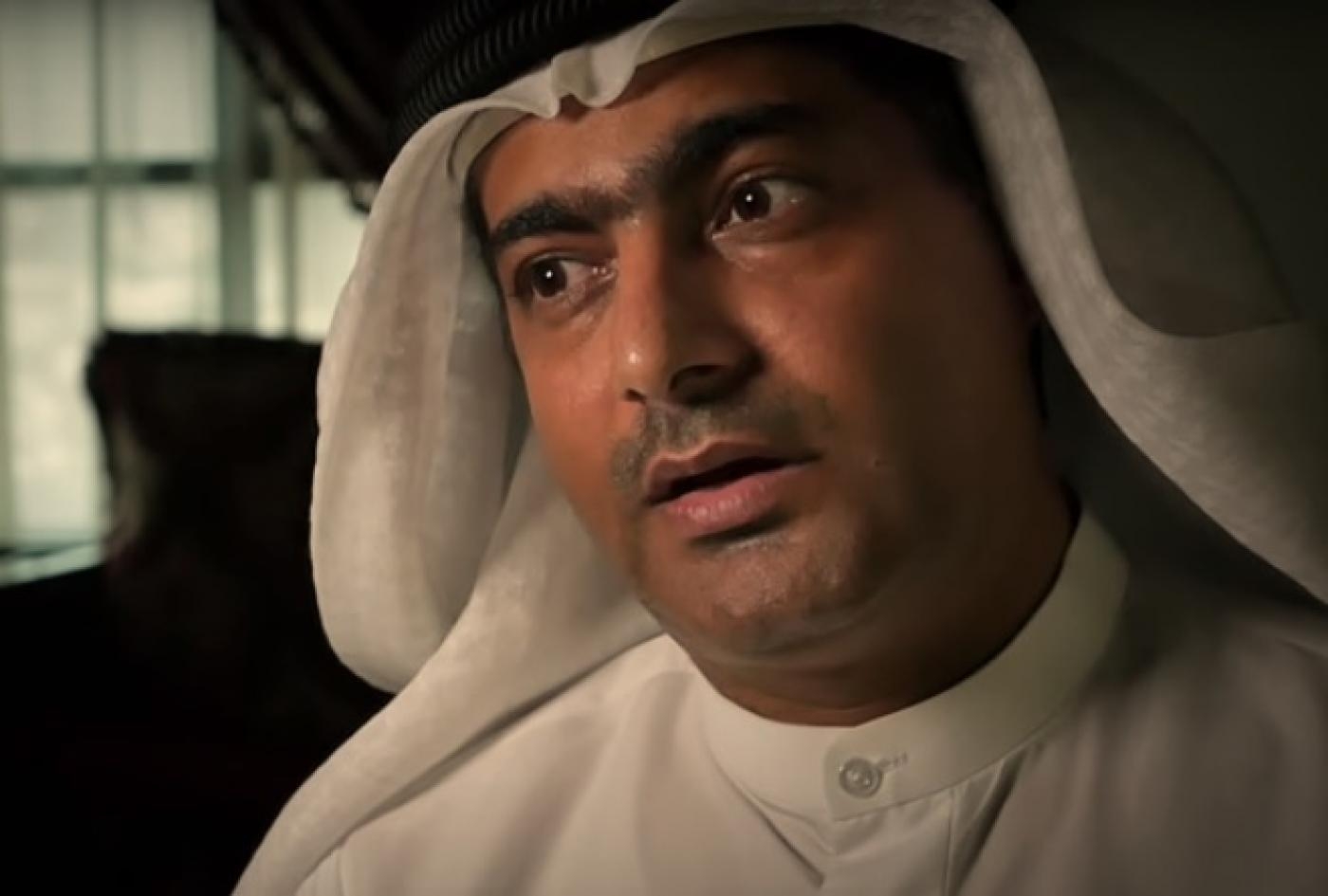
Human Rights Watch (HRW) has published a damning report detailing new information regarding the conditions under which jailed United Arab Emirates (UAE) activist Ahmed Mansoor is being held and the conduct of his 2018 trial.
Mansoor, a 51-year-old Emirati engineer, poet, and father of four was arrested in March 2017 in relation to his human rights advocacy in the UAE.
Having been seized from his home, he was bundled into a 4x4 by men in black balaclavas.
Taken to an unknown place, his family had no idea where he was and for a year had virtually no contact with him.
He was then denied access to a lawyer of his choosing.
Nearly a year after he was detained, he was brought to court, sentenced to 10 years in jail and fined one million dirham ($272,300) after being convicted under anti-terror laws for "insulting the status and prestige of the UAE and its symbols including its leaders" and of "seeking to damage the relationship of the UAE with its neighbours by publishing false reports and information on social media".
In December 2018 his final appeal was rejected.
Solitary confinement
In its report published on Wednesday, HRW reveals the first public account of Mansoor’s closed trial, and of his subsequent appeal (including that his first two court appearances lasted just five minutes, and at one he had no lawyer present, and at the other, the judge was not present).
The report was based on statements obtained from a source with direct knowledge of Mansoor’s court proceedings as well as interviews with two former prisoners who, at different times during his detention in al-Sadr prison, were detained alongside him in a designated isolation ward.
The sources told HRW that Mansoor has spent the past four years entirely alone in a two-meter by two-metre cell.
State security forces interrogated Mansoor several times in custody before his trial began. During his last interrogation, in December 2017, Mansoor rejected interrogators’ demands to hand over his Twitter account password.
He returned to his cell late that evening to find that prison guards had entered in his absence and snatched away his clothes, his mattress, all his personal hygiene products, all his towels but one, and his papers and pens.
HRW was also told that Mansoor is separated from other prisoners even within the isolation block of al-Sadr prison - and that if he is allowed into the exercise yard or the prison clinic, all other prisoners are removed ahead of time.
'Insulting the rulers'
Mansoor began his human rights activism in the UAE in 2006 and, soon after, caught the attention of the country’s rulers and its people when he successfully campaigned for the release of two Emiratis jailed for comments they made online.
In 2009, he led an effort opposing a draft media law that threatened freedom of expression and launched a petition urging the UAE president, Khalifa bin Zayed Al Nahyan (the ruler of Abu Dhabi), not to approve it. His efforts were successful, and the president suspended the draft law.
In early 2011, after signing a petition calling for democratic and economic reforms, Mansoor was subjected to an online smear campaign orchestrated by the state security apparatus.
It was a campaign that included many death threats. Then in April of that year, he was arrested, held in jail for nearly eight months and convicted of “insulting the rulers”.
On 27 November 2011, Mansoor was sentenced to three years in jail. The next day, thanks largely to an international outcry, he and four others sentenced with him were pardoned.
By the time he was released, he had already lost his job as a senior engineer in a telecommunications firm.
'Million-dollar dissident'
Subsequently, the government refused to issue him a Certificate of Good Conduct. Without the certificate, he could not be employed in either the private or public sectors.
His bank accounts were frozen. His passport was confiscated and he was banned from travel, a ban which the authorities refused to lift so he could receive in person the prestigious Martin Ennals Award for human rights defenders in Geneva in 2015.
In August 2016, in the most publicised government attempt to hack his iPhone and online accounts, Mansoor received a text containing a link that the sender promised would divulge information on detainee torture in UAE prisons.
Instead of clicking on the link, Mansoor forwarded the message to Citizen Lab researchers who determined that this was a sophisticated phishing attempt using technology from an Israeli company, the NSO Group.
The attack exposed vulnerabilities in Apple’s mobile operating system, spurring the company to release an update fixing that security flaw.
Security experts said at the time that the tool used to target Mansoor could be worth as much as $1m, leading some to refer to Mansoor as the “million-dollar dissident”.
Hunger strikes
In 2019, after he had exhausted all the means available to him to claim his rights as a prisoner, Mansoor embarked on two hunger strikes, six months apart.
Among his demands were an end to solitary confinement and access to necessities, including blankets and personal hygiene products.
While the hunger strikes did prompt the authorities to allow him to call his wife and mother briefly twice a month and access to sunlight and exercise three times a week, the authorities did not grant him reprieve from his indefinite solitary confinement
Human Rights Watch and the Gulf Centre for Human Rights (GCHR) have regularly documented serious allegations of abuse at the hands of state security forces against dissidents and activists who have spoken up about human rights issues.
Those abuses include arbitrary detention, enforced disappearances, and torture.
In its report on Wednesday, HRW said the UAE has arrested and prosecuted hundreds of lawyers, judges, teachers and activists since then, and shut down key civil society associations and the offices of foreign organisations, effectively crushing any space for dissent.
International appeal
HRW said that despite appeals by UN experts, US members of Congress and European parliamentarians, as well as numerous regional and international rights groups and well-known figures, governments and world leaders had failed to raise publicly with UAE rulers the treatment of Mansoor and others imprisoned in the UAE.
The US-based organisation called on the UAE to "immediately and unconditionally" release Mansoor as well as all human rights defenders, political activists and other dissidents imprisoned solely for exercising their basic human rights, including the rights to free speech, association, and peaceful assembly.
It also called on the governments of the US, Britain, France, and Germany to publicly and privately call on UAE authorities to immediately and unconditionally release Mansoor and anyone else detained in the UAE for exercising basic rights.
Middle East Eye delivers independent and unrivalled coverage and analysis of the Middle East, North Africa and beyond. To learn more about republishing this content and the associated fees, please fill out this form. More about MEE can be found here.


